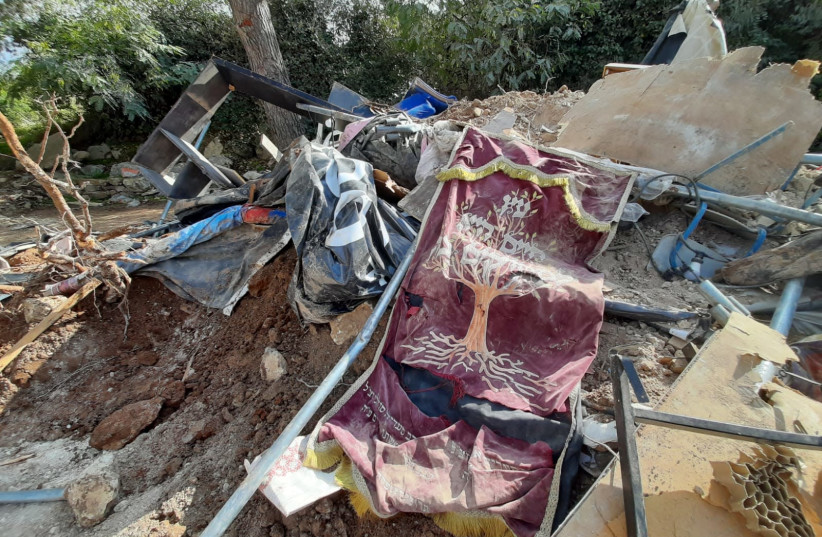The Homesh Yeshiva won’t be evacuated, Knesset House Committee Chairman Nir Orbach (Yamina) declared on Wednesday, in the midst of a heated debate on the fate of the hilltop located in the Samaria region.
“We, from our perspective – and I am talking now as a representative of the Yamina Party in the coalition – do not intend to evacuate Homesh,” said Orbach, in advance of the state’s anticipated decision on February 6. The state will respond then to a High Court of Justice case filed by the left-wing NGO Yesh Din in 2019 on the state’s failure to abide by its own military orders, and a past court ruling with regard to the hilltop.
Israelis have been denied legal access to the hilltop since the IDF demolished the settlement as part of the 2005 Disengagement when 21 Gaza settlements were destroyed.
For more than 15 years, a yeshiva has existed illegally at the site, despite multiple evacuations.
The settlement itself was built on private Palestinian property the IDF seized from the village of Burka in 1978 for military use. It was then reallocated for a civilian community in 1980.

In 2013, the High Court of Justice ruled that Palestinian farmers from Burka could access their lands, but the execution of that ruling has been problematic. At issue has been the IDF’s failure to allow access, and violence that has occurred between settlers and Palestinians when access is granted.
Yesh Din turned to the High Court over Palestinian access in 2019, but it did not specially request the demolition of the yeshiva.
It has been expected, however, that the state would address this in its response. Last month’s terrorist attack in which Yehuda Dimentman was killed as he left the Homesh Yeshiva has given renewed strength to the battle there, which is located between Nablus and Jenin.
Dimentman’s family has asked the government to authorize the yeshiva in his memory and rebuild a settlement there. It has been expected, however, that Defense Minister Benny Gantz, under pressure from the courts, will permanently evacuate the small modular religious seminary.
Bennett is under pressure from right-wing politicians including from his own party to allow the yeshiva to remain on the hilltop.
“If you evacuate Homesh, it’s a withdrawal,” MK Orit Struck (Religious Zionist Party) said in the committee.
In December, the Knesset rejected a declarative statement to legalize Homesh, with 50 parliamentarians voting in support and 59 opposing.
Samaria Regional Council head Yossi Dagan said the destruction of the Homesh Yeshiva would complete the 2005 Disengagement that was executed by former prime minister Ariel Sharon, and would be a statement in support of terrorism.
“We can’t afford to give a prize to terror,” he said.
